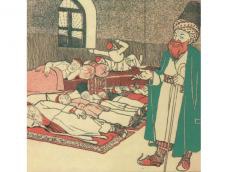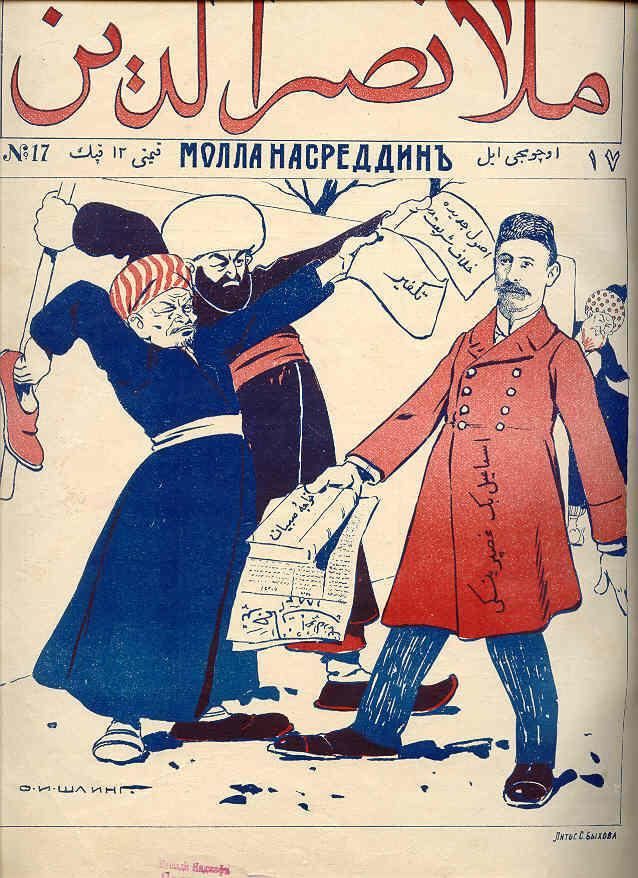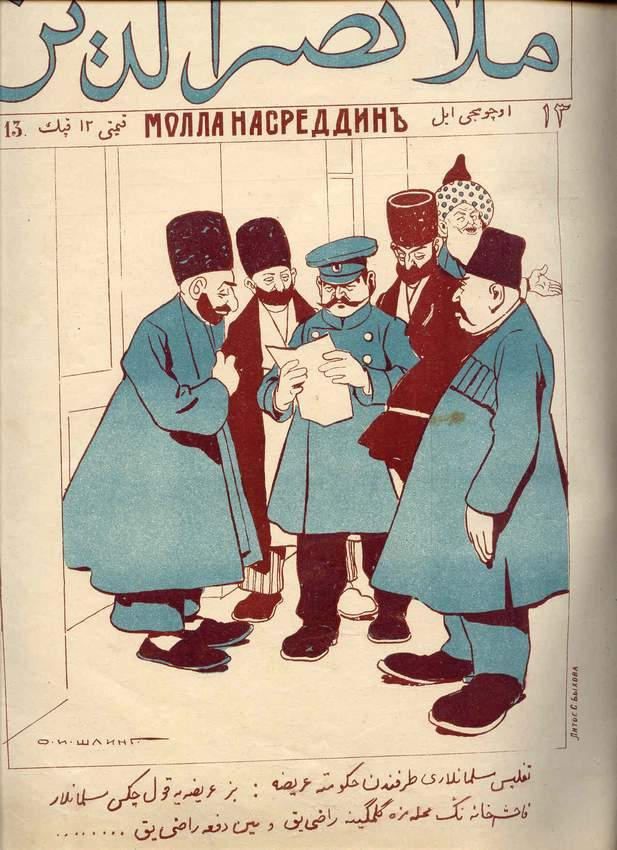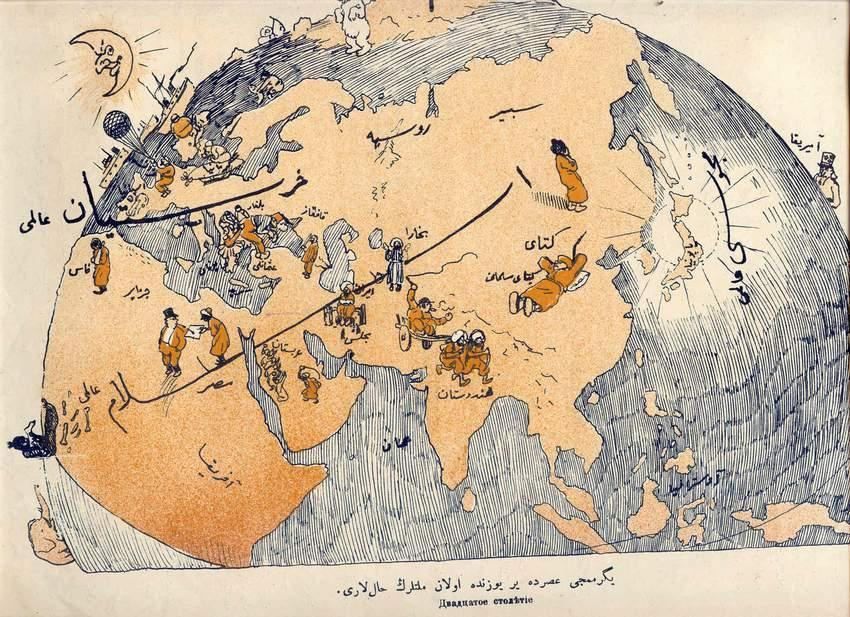|
|
TODAY.AZ / Arts & Entertainment
From past to present: 118 years of Molla Nasreddin magazine
08 April 2024 [17:57] - TODAY.AZ
 Laman Ismayilova
Laman Ismayilova
118 years have passed since the publication of the first issue of Molla Nasreddin magazine, the eight-page weekly satirical magazine, which has played an invaluable role in the history of the Azerbaijani press, Azernews reports.
The founder, publisher, and chief editor of "Molla Nasreddin:" was the great writer and journalist Jalil Mammadguluzade.

The magazine made its debut in Tbilisi on April 7, 1906, releasing a total of 340 issues until 1917. Subsequently, it was published in Tabriz with eight issues in 1921, followed by a stint in Baku from 1922 to 1931, producing a grand total of 400 issues.
"Molla Nasreddin" was something revolutionary for that period, focusing on such topics as corruption, snobbery, ignorance, religious fanaticism, equal rights for women, as well as freedom of expression and the preservation of national language and traditions.
The publication fully reflected the country's socio-political life in the early twentieth century.

The name of the magazine was inspired by Molla Nasreddin, a satirical comic character that was popular in Eastern folk literature.
Unlike other publications of that time, "Molla Nasreddin" also addressed uneducated people, as it used satirical verses, stories, and cartoons to convey its messages to society.
It showcased the works of talented Azerbaijani writers and pressmen like M.A. Sabir, N. Narimanov, A. Haqverdiyev, M.S. Ordubadi, O.F. Nemanzadeh, Ali Nazmi, and A. Gamkusar.

A significant contributor to the magazine's popularity was the satirical poetry of ?abir, an innovative poet of Azerbaijan, whose works were regularly featured until his passing in 1911.
?abir's poems shed light on the injustices faced by various segments of society, including the arbitrary actions of Tsarist officials, the plight of women, and the struggles of the working class.
"Molla Nasreddin" also played a pivotal role in advocating for women's rights and was instrumental in granting voting rights to Azerbaijani women in 1919, a groundbreaking move in the Muslim world. However, its bold and critical articles often drew the ire of the political elite, leading to multiple bans in 1912, 1914, and 1917.
The publication of "Molla Nasreddin" awakened various aspects of the lives of the people and led to a great revival of the national press.
Despite facing numerous challenges, the magazine persevered for over 25 years, sparking a renaissance in the Azerbaijani national press and giving impetus to the development of satirical drawing and caricature.
Its influence extended beyond borders, inspiring the publication of satirical magazines in Azerbaijan and neighbouring countries.
URL: http://www.today.az/news/entertainment/246907.html
 Print version
Print version
Connect with us. Get latest news and updates.
See Also
- 11 February 2026 [14:58]
Cultural sector enters new era of growth and transformation - 11 February 2026 [14:46]
Central Scientific Library hosts conference on women and girls in science - 11 February 2026 [12:02]
Researchers conduct in-depth studies at Aghdam's Imarat Complex - 11 February 2026 [11:22]
Karabakh monuments included in ICESCO Islamic World Heritage List - 11 February 2026 [10:00]
State Academic Musical Theatre expands cross-border ties - 10 February 2026 [15:37]
Filmmakers' Union launches feature film lab - 10 February 2026 [15:28]
Major step taken to modernize Azerbaijan's film industry - 10 February 2026 [15:00]
Dates of Laylat al-Qadr nights announced for Ramadan - 10 February 2026 [13:32]
Reza Deghati's 'Rising Light' exhibition opens at Heydar Aliyev Int'l Airport - 10 February 2026 [12:51]
Azerbaijan Union of Architects to participate in World Urban Forum
Most Popular
 Nakhchivan railway project to benefit Azerbaijan and European Union
Nakhchivan railway project to benefit Azerbaijan and European Union
 United States takes over nuclear security of South Caucasus
United States takes over nuclear security of South Caucasus
 Iran takes hard line on protest detainees, excluding them from amnesty
Iran takes hard line on protest detainees, excluding them from amnesty
 Baku, Tehran explore restoring passenger travel via land border amid regional connectivity talks
Baku, Tehran explore restoring passenger travel via land border amid regional connectivity talks
 Billions in a backpack and Generals' daughters: a little bit about Zatulin's crazy career
Billions in a backpack and Generals' daughters: a little bit about Zatulin's crazy career
 Abbas rejects Israel's 'dangerous' West Bank reform plan
Abbas rejects Israel's 'dangerous' West Bank reform plan
 Trump posts map showing Greenland, Canada and Venezuela under US flag
Trump posts map showing Greenland, Canada and Venezuela under US flag
